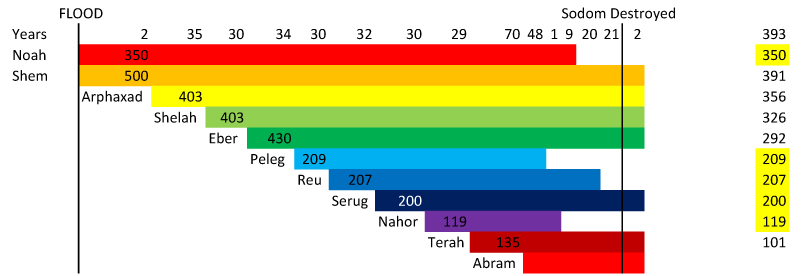This is the table representing my unstudied view of the relationship of the clauses of Revelation 2:26-29.
|
Revelation 2:26-29 (NET) |
||
|
And to the one who conquers |
and |
who continues in my deeds until the end, |
|
I will give him authority over the nations – |
||
|
he will rule them with an iron rod |
and |
like clay jars he will break them to pieces, |
|
just as I have received the right to rule from my Father – |
and |
I will give him the morning star. |
|
The one who has an ear had better hear what the Spirit says to the churches. |
||
I’m considering who continues in my deeds until the end, because it tugs the hardest at me to return to my own works. As the title of this essay suggests my goal is to understand what Jesus meant by τὰ ἔργα μου, translated my deeds. I’ve begun with τηρῶν (a form of τηρέω), translated who continues. The most basic understanding of τηρῶν is: Blessed is the one who stays alert and does not lose (τηρῶν, a form of τηρέω) his clothes so that he will not have to walk around naked…[1] It means to keep, not to lose or discard.
In this essay I’ll begin with, The one who says “I have come to know God” and yet does not keep (τηρῶν, a form of τηρέω) his commandments is a liar, and the truth is not in such a person.[2] This occurs in a particular context which I’ll begin for the sake of argument with John’s contrast of light and darkness (1 John 1:5 (NET):
Now this is the gospel message we have heard from him and announce to you: God is light (φῶς), and in him there is no darkness (σκοτία) at all.
This hearkens back to John’s description of Jesus as the Word (λόγος): In him was life, and the life was the light (φῶς) of mankind. And the light (φῶς) shines on in the darkness (σκοτίᾳ), but the darkness (σκοτία) has not mastered it.[3] And it mirrors Jesus’ description of Himself: I am the light (φῶς) of the world. The one who follows me will never walk (περιπατήσῃ, a form of περιπατέω) in darkness (σκοτίᾳ), but will have the light (φῶς) of life.[4] John continued his letter (1 John 1:6, 7 NET):
If we say we have fellowship with him and yet keep on walking (περιπατῶμεν, another form of περιπατέω) in the darkness (σκότει, a form of σκότος), we are lying and not practicing the truth. But if we walk (περιπατῶμεν, another form of περιπατέω) in the light (φωτὶ, another form of φῶς) as he himself is in the light (φωτί, another form of φῶς) we have fellowship with one another and the blood of Jesus his Son cleanses us from all sin (ἁμαρτίας, a form of ἁμαρτία).
This brings me back to Jesus’ words to Nicodemus, the light (φῶς) has come into the world and people loved the darkness (σκότος) rather than the light (φῶς), because their deeds were evil. For everyone who does evil deeds hates the light (φῶς) and does not come to the light (φῶς), so that their deeds will not be exposed. But the one who practices the truth comes to the light (φῶς), so that it may be plainly evident that his deeds have been done in God.[5]
I admit I had hoped this would be plainly evident to others but apparently my deeds having been done in God is only plainly evident to me. Most people who know me assume I obey, more or less, a stringent set of rules that I have proven over and over again (to myself) to be incapable of obeying.
If I hadn’t already considered, and before I had considered, πονηρὰ (a form of πονηρός; translated, evil) and φαῦλα (a form of φαῦλος; evil deeds) I would have assumed that walking in darkness was equivalent to walking in sin and walking in the light therefore would mean not sinning. But as John continued in his letter I gain another line of argument that πονηρὰ and φαῦλα are not equivalent to ἁμαρτίας, at least as far as they relate to Jesus’/John’s concept of walking in darkness or light. John continued (1 John 1:8-10 NET):
If we say we do not bear the guilt of sin (ἁμαρτίαν, another form of ἁμαρτία), we are deceiving ourselves and the truth is not in us. But if we confess our sins (ἁμαρτίας, a form of ἁμαρτία), he is faithful and righteous, forgiving us our sins (ἁμαρτίας, a form of ἁμαρτία) and cleansing us from all unrighteousness (ἀδικίας, a form of ἀδικία). If we say we have not sinned (ἡμαρτήκαμεν, a form of ἁμαρτάνω), we make him a liar and his word (λόγος) is not in us.
Walking in the light and being cleansed of sin by the blood of Jesus are associated with acknowledging and confessing one’s own sin, while walking in darkness is associated with saying one does not bear the guilt of sin or has not sinned. Here is the same information in tabular form.
| Reference |
Light (φῶς) |
Darkness (σκοτία) |
| 1 John 1:5 | God is light, | and in him there is no darkness at all. |
| 1 John 1:6 | If we say we have fellowship with him and yet keep on walking in the darkness, we are lying and not practicing the truth. | |
| 1 John 1:7, 8 | But if we walk in the light as he himself is in the light, we have fellowship with one another and the blood of Jesus his Son cleanses us from all sin. | If we say we do not bear the guilt of sin, we are deceiving ourselves and the truth is not in us. |
| 1 John 1:9, 10 | But if we confess our sins, he is faithful and righteous, forgiving us our sins and cleansing us from all unrighteousness. | If we say we have not sinned, we make him a liar and his word is not in us. |
The one who practices the truth comes to the light (φῶς), so that it may be plainly evident that his deeds (ἔργα, a form of ἔργον) have been done in God as opposed to those who love the darkness and hate the light so that their deeds (ἔργα, a form of ἔργον) [e.g., their deeds of righteousness] will not be exposed as πονηρὰ and φαῦλα. And we have a hint here that τὰ ἔργα μου, translated my deeds, are deeds done in God as opposed to those done in one’s own strength. John continued (1 John 2:1, 2 NET):
(My little children, I am writing these things to you so that you may not sin [ἁμάρτητε, another form of ἁμαρτάνω].) But if anyone does sin (ἁμάρτῃ, another form of ἁμαρτάνω), we have an advocate with the Father, Jesus Christ the righteous One, and he himself is the atoning sacrifice for our sins (ἁμαρτιῶν, another form of ἁμαρτία), and not only for our sins (ἡμετέρων, a form of ἡμέτερος) but also for the whole world.
While the goal remains to cease from sin, the question that has plagued me is how? Jesus’ attitude toward forgiveness was fairly clear when Peter asked how many times must I forgive my brother?[6] Jesus said to him, “Not seven times, I tell you, but seventy-seven times!”[7] The note (33) in the NET reads: “Or ‘seventy times seven,’ i.e., an unlimited number of times.” But long before I have returned to Jesus even seventy-seven times confessing the same sin in the same day I have reworked the commandment in my mind to assuage my own embarrassment. And so through pride and unbelief I have effectively “lost” or “discarded” the commandment. John continued (I John 2:3, 4 NET):
Now by this we know that we have come to know God: if we keep (τηρῶμεν, another form of τηρέω) his commandments. The one who says “I have come to know God” and yet does not keep (τηρῶν, a form of τηρέω) his commandments is a liar, and the truth is not in such a person.
Jesus’ patience has taught me (through many a trial and error) that disobeying a commandment and confessing my sin seventy-seven, or seventy times seven, times a day is keeping that commandment. Rewriting the commandment and denying my sin makes me a liar, and the truth is not in me. Still, I would prefer not to sin in the first place. John continued (1 John 2:5, 6 NET):
But whoever obeys (τηρῇ, another form of τηρέω) his word, truly in this person the love (Romans 13:8-10) of God has been perfected. By this we know that we are in him. The one who says he resides in God ought himself to walk just as Jesus walked.
While it was virtually impossible to translate forms of τηρέω obey or obeys when confession of sin was the topic of discussion, here the NET translators reverted to obeys. I assume it is because they did the same to Jesus’ teaching (John 14:23-26 NET):
If anyone loves me, he will obey (τηρήσει, another form of τηρέω) my word, and my Father will love him, and we will come to him and take up residence with him. The person who does not love me does not obey (τηρεῖ, another form of τηρέω) my words. And the word you hear is not mine, but the Father’s who sent me. I have spoken these things while staying with you. But the Advocate, the Holy Spirit, whom the Father will send in my name, will teach you everything, and will cause you to remember everything I said to you.
The NET translators believed: The person who has my commandments and obeys (τηρῶν, a form of τηρέω) them is the one who loves me.[8] Jesus believed: Therefore I tell you, her sins (ἁμαρτίαι, another form of ἁμαρτία), which were many, are forgiven, thus she loved much; but the one who is forgiven little loves little.[9] Still, both Jesus’ teaching and John’s teaching point one to the same fulfillment of a desire for obedience. Jesus said, the Holy Spirit, whom the Father will send in my name, will teach you everything, and will cause you to remember everything I said to you. John wrote, The one who says he resides in God ought himself to walk just as Jesus walked.
How did Jesus walk (περιεπάτησεν, another form of περιπατέω)? He was led (ἀνήχθη, a form of ἀνάγω[10]; ἤγετο, a form of ἄγω[11]) by the Spirit that descended and remained on him. Mark wrote: The Spirit immediately drove (ἐκβάλλει, a form of ἐκβάλλω[12]) him into the wilderness.[13] Oh, to let go of fear and be ἀνήχθη, ἤγετο and ἐκβάλλει by the Spirit of God.
And the person who keeps (τηρῶν, a form of τηρέω) his commandments, John concluded, resides in God, and God in him. Now by this we know that God resides in us: by the Spirit he has given us.[14] A comparison of these verses in the KJV and NET follows.
| Reference |
KJV |
NET |
| 1 John 1:5 | This then is the message which we have heard of him, and declare unto you, that God is light, and in him is no darkness at all. | Now this is the gospel message we have heard from him and announce to you: God is light, and in him there is no darkness at all. |
| 1 John 1:6 | If we say that we have fellowship with him, and walk in darkness, we lie, and do not the truth: | If we say we have fellowship with him and yet keep on walking in the darkness, we are lying and not practicing the truth. |
| 1 John 1:7 | But if we walk in the light, as he is in the light, we have fellowship one with another, and the blood of Jesus Christ his Son cleanseth us from all sin. | But if we walk in the light as he himself is in the light, we have fellowship with one another and the blood of Jesus his Son cleanses us from all sin. |
| 1 John 1:8 | If we say that we have no sin, we deceive ourselves, and the truth is not in us. | If we say we do not bear the guilt of sin, we are deceiving ourselves and the truth is not in us. |
| 1 John 1:9 | If we confess our sins, he is faithful and just to forgive us our sins, and to cleanse us from all unrighteousness. | But if we confess our sins, he is faithful and righteous, forgiving us our sins and cleansing us from all unrighteousness. |
| 1 John 1:10 | If we say that we have not sinned, we make him a liar, and his word is not in us. | If we say we have not sinned, we make him a liar and his word is not in us. |
| 1 John 2:1 | My little children, these things write I unto you, that ye sin not. And if any man sin, we have an advocate with the Father, Jesus Christ the righteous: | (My little children, I am writing these things to you so that you may not sin.) But if anyone does sin, we have an advocate with the Father, Jesus Christ the righteous One, |
| 1 John 2:2 | And he is the propitiation for our sins: and not for ours only, but also for the sins of the whole world. | and he himself is the atoning sacrifice for our sins, and not only for our sins but also for the whole world. |
| 1 John 2:3 | And hereby we do know that we know him, if we keep his commandments. | Now by this we know that we have come to know God (αὐτόν, a form of αὐτός): if we keep his commandments. |
| 1 John 2:4 | He that saith, I know him, and keepeth not his commandments, is a liar, and the truth is not in him. | The one who says “I have come to know God (αὐτόν, a form of αὐτός)” and yet does not keep his commandments is a liar, and the truth is not in such a person. |
| 1 John 2:5 | But whoso keepeth his word, in him verily is the love of God perfected: hereby know we that we are in him. | But whoever obeys his word, truly in this person the love of God has been perfected. By this we know that we are in him. |
| 1 John 2:6 | He that saith he abideth in him ought himself also so to walk, even as he walked. | The one who says he resides in God (αὐτῷ, another form of αὐτός) ought himself to walk just as Jesus (ἐκεῖνος) walked. |
| 1 John 3:24 | And he that keepeth his commandments dwelleth in him, and he in him. And hereby we know that he abideth in us, by the Spirit which he hath given us. | And the person who keeps his commandments resides in God (αὐτῷ, another form of αὐτός), and God (αὐτὸς) in him. Now by this we know that God resides (μένει, a form of μένω; literally, he resides) in us: by the Spirit he has given us. |



